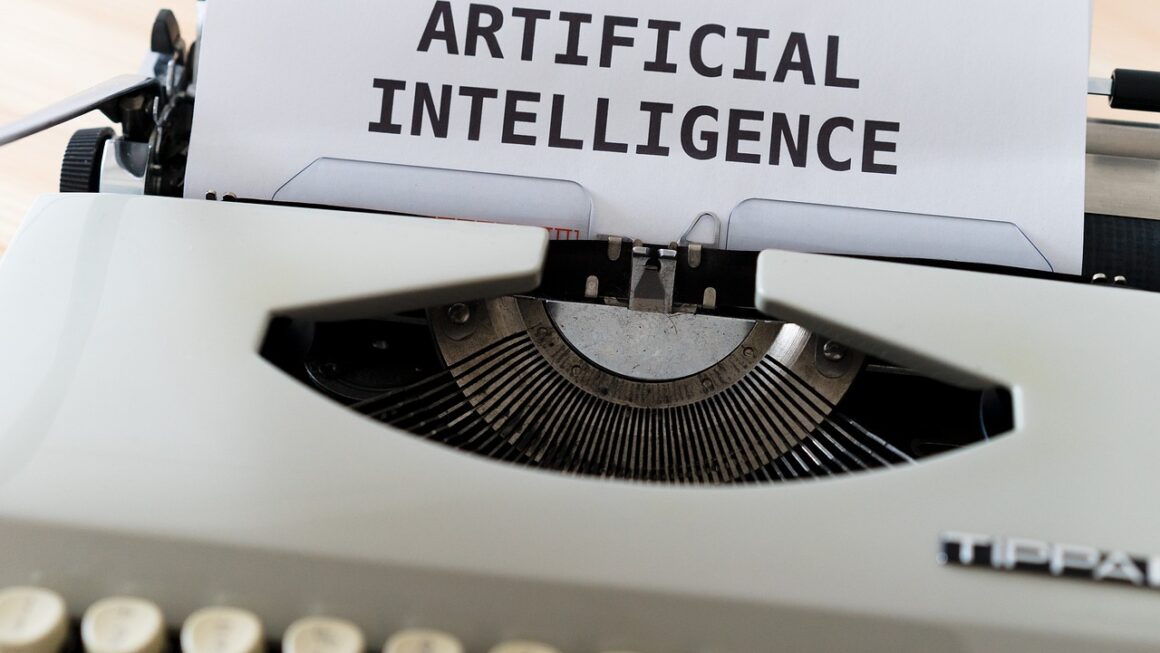The rise of artificial intelligence (AI) is no longer a future prediction – it’s a present reality transforming industries and reshaping how we work. One of the most accessible and impactful ways businesses are leveraging AI is through AI Software as a Service (SaaS). By delivering AI capabilities through cloud-based platforms, AI SaaS empowers organizations of all sizes to harness the power of machine learning, natural language processing, and other AI technologies without the significant upfront investment and technical expertise traditionally required. This article delves into the world of AI SaaS, exploring its benefits, applications, and future trends.
What is AI SaaS?
Defining AI SaaS
AI SaaS refers to software applications that are delivered over the internet on a subscription basis, offering AI-powered functionalities to users. Unlike traditional software models that require installation and maintenance on local servers, AI SaaS resides in the cloud, enabling users to access and utilize AI capabilities from anywhere with an internet connection. This delivery model significantly lowers the barrier to entry for businesses seeking to implement AI solutions.
- Key characteristics of AI SaaS:
Cloud-based: Hosted and managed on the vendor’s servers.
Subscription-based: Users pay a recurring fee for access to the software.
Scalable: Resources can be easily adjusted based on usage needs.
Accessible: Can be accessed from any device with an internet connection.
Automated updates: Vendors handle all software updates and maintenance.
The Difference Between Traditional SaaS and AI SaaS
While both traditional SaaS and AI SaaS leverage the cloud delivery model, the core difference lies in the underlying technology. Traditional SaaS applications typically provide specific functionalities like CRM or project management. AI SaaS, on the other hand, integrates AI capabilities to enhance existing functionalities or introduce entirely new intelligent features.
- Examples illustrating the difference:
Traditional SaaS CRM: Stores customer data and automates sales processes.
AI SaaS CRM: Predicts customer churn, identifies high-potential leads, and personalizes customer interactions based on AI-driven insights.
Traditional SaaS Marketing Automation: Schedules email campaigns and tracks basic metrics.
AI SaaS Marketing Automation: Optimizes email send times based on individual user behavior, creates personalized content recommendations, and predicts campaign performance.
Benefits of Using AI SaaS
Cost Efficiency
AI SaaS eliminates the need for significant upfront investments in hardware, software licenses, and specialized AI expertise. The subscription-based model allows businesses to pay only for what they use, reducing capital expenditures and operating costs.
- How AI SaaS drives cost savings:
Reduced infrastructure costs: No need to purchase or maintain servers.
Lower operational expenses: Vendors handle software updates and maintenance.
Reduced labor costs: AI automates tasks, freeing up employees for higher-value activities.
Pay-as-you-go pricing: Scalable pricing aligns costs with usage.
Scalability and Flexibility
AI SaaS solutions offer unparalleled scalability, allowing businesses to easily adjust their resources based on their evolving needs. Whether scaling up during peak seasons or scaling down during slower periods, AI SaaS provides the flexibility to adapt to changing demands without incurring significant costs.
- Example: An e-commerce company using an AI SaaS recommendation engine can easily scale up its computing resources during the holiday season to handle increased traffic and product recommendations.
Enhanced Productivity and Efficiency
AI SaaS automates repetitive tasks, streamlines workflows, and provides valuable insights, enabling businesses to boost productivity and efficiency. By automating tasks like data entry, customer service inquiries, and report generation, employees can focus on more strategic and creative endeavors.
- Examples of AI-driven productivity gains:
Automated data entry using AI-powered OCR (Optical Character Recognition).
Improved customer service with AI-powered chatbots that handle routine inquiries.
Automated report generation using AI algorithms to analyze data and identify trends.
Improved Decision-Making
AI SaaS provides businesses with access to advanced analytics and insights that can inform better decision-making. By analyzing vast amounts of data, AI algorithms can identify patterns, predict outcomes, and provide recommendations that can help businesses make more informed decisions.
- Examples of AI-driven decision-making:
Predictive analytics to forecast sales trends and optimize inventory management.
Customer segmentation using AI to identify target audiences for marketing campaigns.
Risk assessment using AI to identify potential fraud or security threats.
Applications of AI SaaS Across Industries
Marketing and Sales
AI SaaS is revolutionizing marketing and sales by enabling personalized customer experiences, automating marketing campaigns, and improving lead generation.
- Examples of AI SaaS in marketing and sales:
Personalized marketing: AI-powered recommendation engines, personalized email campaigns, and targeted advertising.
Lead generation: AI-powered chatbots, lead scoring, and predictive lead generation.
Sales forecasting: AI-driven sales forecasting, sales automation, and customer relationship management.
Tools: HubSpot, Salesforce Einstein, Marketo
Customer Service
AI SaaS is transforming customer service by enabling faster and more efficient support, automating routine inquiries, and improving customer satisfaction.
- Examples of AI SaaS in customer service:
Chatbots: AI-powered chatbots for instant customer support and issue resolution.
Sentiment analysis: AI-driven sentiment analysis to identify customer emotions and tailor support accordingly.
Personalized support: AI-powered personalized support experiences based on customer data and preferences.
Tools: Zendesk, Intercom, Freshdesk
Finance and Accounting
AI SaaS is streamlining finance and accounting processes by automating tasks, improving accuracy, and providing valuable insights.
- Examples of AI SaaS in finance and accounting:
Fraud detection: AI-powered fraud detection systems to identify and prevent fraudulent transactions.
Invoice processing: AI-driven invoice processing automation to streamline invoice management.
Financial forecasting: AI-powered financial forecasting to predict future financial performance.
Tools: BlackLine, DataRails, UiPath
Healthcare
AI SaaS is improving healthcare outcomes by enabling faster and more accurate diagnoses, personalizing treatment plans, and streamlining administrative processes.
- Examples of AI SaaS in healthcare:
Medical imaging analysis: AI-powered medical imaging analysis for faster and more accurate diagnoses.
Personalized medicine: AI-driven personalized treatment plans based on individual patient data.
Drug discovery: AI-powered drug discovery to accelerate the development of new medications.
Tools: PathAI, Zebra Medical Vision, Qventus
Choosing the Right AI SaaS Solution
Defining Your Needs and Objectives
Before selecting an AI SaaS solution, it’s crucial to clearly define your specific needs and objectives. Identify the areas where AI can have the greatest impact on your business and prioritize your requirements accordingly.
- Questions to consider:
What specific problems are you trying to solve with AI?
What data do you have available to train AI models?
What level of AI expertise do you have in-house?
What is your budget for AI SaaS solutions?
Evaluating Vendor Capabilities and Expertise
When evaluating potential AI SaaS vendors, consider their experience, expertise, and track record. Look for vendors with a proven history of successful AI implementations and a deep understanding of your industry.
- Factors to consider:
Vendor’s experience and expertise in AI.
Vendor’s understanding of your industry.
Vendor’s track record of successful AI implementations.
Customer reviews and testimonials.
Assessing Data Security and Privacy
Data security and privacy are paramount when working with AI SaaS solutions. Ensure that the vendor has robust security measures in place to protect your data and complies with all relevant data privacy regulations.
- Key security considerations:
Data encryption and access controls.
Compliance with data privacy regulations (e.g., GDPR, HIPAA).
Regular security audits and penetration testing.
Data residency and location.
Testing and Piloting the Solution
Before committing to a long-term contract, test and pilot the AI SaaS solution to ensure that it meets your needs and delivers the expected results. This allows you to evaluate the software’s functionality, usability, and performance in a real-world setting.
- Tips for successful piloting:
Start with a small-scale pilot project.
Involve key stakeholders in the testing process.
Track key performance indicators (KPIs) to measure the success of the pilot.
* Gather feedback from users and make adjustments as needed.
Future Trends in AI SaaS
Democratization of AI
AI SaaS is making AI more accessible to businesses of all sizes, regardless of their technical expertise or budget. This democratization of AI will continue to drive innovation and adoption across various industries. More pre-trained models and easier-to-use interfaces will lower the barrier to entry even further.
Increased Automation and Integration
AI SaaS solutions are becoming increasingly automated and integrated with other business systems, such as CRM, ERP, and marketing automation platforms. This seamless integration will streamline workflows and enable more efficient data sharing and analysis.
Enhanced Personalization and Customization
AI SaaS solutions are becoming more personalized and customizable, allowing businesses to tailor the software to their specific needs and preferences. This enhanced personalization will improve user experience and drive greater value. Features like custom model training and configurable dashboards will become increasingly common.
Edge AI
The rise of edge computing will lead to the development of AI SaaS solutions that can process data closer to the source, reducing latency and improving performance. Edge AI will be particularly beneficial for applications that require real-time decision-making, such as autonomous vehicles and industrial automation.
Conclusion
AI SaaS represents a powerful and accessible way for businesses to harness the transformative potential of artificial intelligence. By offering cost-effective, scalable, and easy-to-use solutions, AI SaaS is democratizing access to AI and empowering organizations to improve productivity, enhance decision-making, and drive innovation. As AI technology continues to evolve, AI SaaS will undoubtedly play an increasingly vital role in shaping the future of business. By carefully considering your needs, evaluating vendor capabilities, and staying abreast of emerging trends, you can leverage AI SaaS to unlock new opportunities and achieve your business goals. The key takeaways are to clearly define your objectives, prioritize data security, and embrace a test-and-learn approach to ensure a successful AI SaaS implementation.




